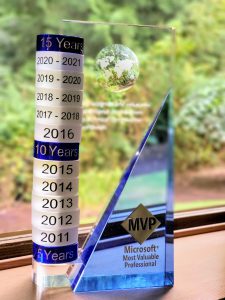
Meet Jared!
Jared is J Street’s Business Development Specialist, and he just closed in on his first year with the J Street Team!
You’ll be hearing a lot more from Jared in future Buzz’s, and we think you’ll like reading what he has to say!
Jared is also your best resource to start scoping your software needs.
Contact us to speak with Jared and schedule a free consultation today!

President Armen Stein was re-awarded Microsoft MVP status for the 15th consecutive year! That tells you something about his passion for technology and helping others.

Remember in the early days of the internet when we called it the “World Wide Web?” We’ve come a long way since then, but say “web” around most people and they’ll instantly know you’re talking about anything internet based. But among a different crowd, the software development community, if you ask for something to be web-based you might be met with the question “do you need a website or a web application?”
Often, potential customers will reach out to us with ideas to grow their business through a new online tool, and we ask them this same question. Sometimes we have to explain the differences between the two, and that’s OK. To the untrained eye, websites and web applications can look one and the same. But underneath the covers you’ll find a world of differences between the two.
A website is a publicly accessible collection of related web pages that display written or visual content. Websites are accessed through an internet browser by users entering the URL or through a search engine, like Google. Websites are most often used for informational, marketing, or educational purposes. Website content is also mostly static, meaning it can only be interacted with on the surface level without the user changing any of the underlying data. However, a website can use a database to display content, through a Content Management System (CMS) like WordPress.
On the other hand, a web application is a piece of living database software accessed (often privately) through an internet browser. Web applications offer a clear and focused utility that is accomplished by users interacting with and manipulating data. Web applications usually aren’t accessible through search engines, and usually require users to authenticate themselves (log in) to gain full access. Web applications are often used internally by organizations to perform specific functions or processes, more so than to inform or market to the public. They are also often integrated with third-party software to support these processes or add functionality for users.
Now, this is a very basic breakdown—the differences can be quite complex and I’ll spend some more time breaking them down in a future full-length article. A helpful analogy would be to think of websites as billboards and web applications as gas stations when navigating the complex internet highway. When you pass a billboard, you might read its message, look at its pictures, and maybe change your course to visit the location being advertised. But when you visit a gas station you have a purpose or process in mind: filling up your tank, buying snacks, or taking a restroom break. A gas station can offer you the means to do all of that, and you got there by taking the same road you passed the billboard on.
Are you considering a web application to enhance your business? Look no further than the expert developers at J Street. And if a website is actually what you need, we’re happy to refer you to our friends who helped design ours!
Contact Us today to learn more!

J Street is growing! Meet Ian Johnson
Ian was one of his college’s delegates at Microsoft’s 2019 Hackathon and studied application development, particularly web development tools like React and Node.js. His final project, a streaming video gallery for an independent film festival in Seattle, is still being used today.
WHAT ELSE? Ian spends his time cooking and tending his extensive collection of houseplants. He thinks art is important and collects wild mushrooms in the spring and fall.


